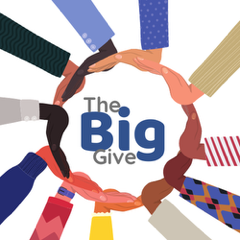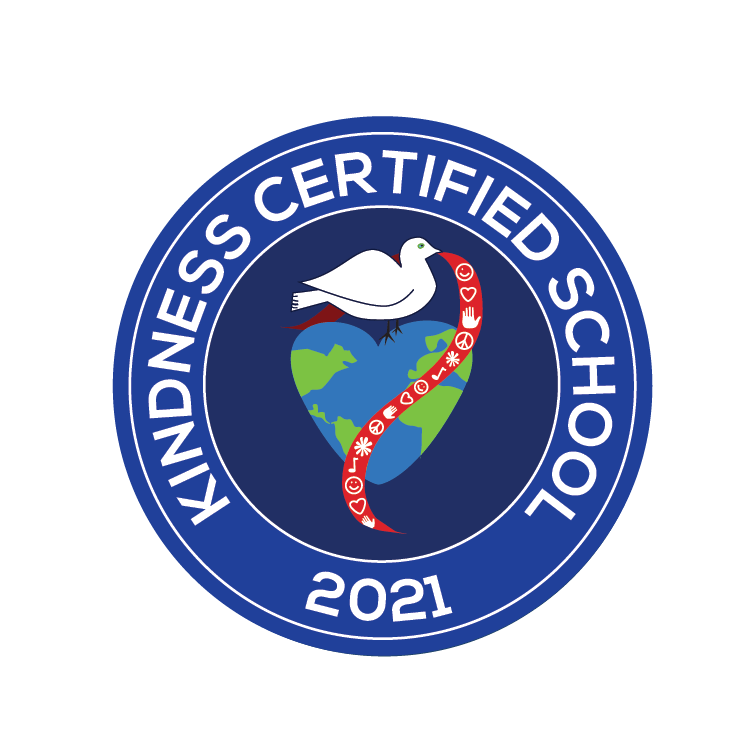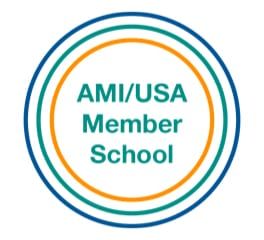Classroom Notes | November 2019 Happenings
Ms. Crews
Writing as Self-Expression
The Moveable Alphabet is a material that allows a child, for the first time, to organize her thoughts visibly in a way that can be understood by others. This is generally introduced during a child’s second year in Primary and expands from one-word statements into song lyrics, letters to another person, and true stories from the child’s life.
Children write what they hear, using key letter sounds learned with the Sandpaper Letters . As the child begins reading, self-correcting with math, and improving her handwriting, we naturally begin to introduce the concept of spelling. “There is one way we’ve agreed to spell this word. It looks like this.” The child learns that if she wants others to be able to read her thoughts, she must have legible handwriting, correct spelling, and coherent thoughts. This concept follows her into Upper Elementary and beyond.
Simultaneously, the adults are modeling telling “true stories” in small groups of children. We gather a group of children, invite them close, and tell an absolutely tantalizing tale of… how we prepared breakfast, or how we went for a walk in the woods ! These mundane daily events are fascinating to the young child, who is learning all about the world around him and experiencing many things for the first time. This fall, I’ve told the children about harvesting vegetables at a farm, picking apples from a tree, and preparing beet soup ! The audience waited with baited breath.
This type of communication models coherent organization of thoughts. As children begin to write their thoughts down, they are encouraged to think through them logically from beginning to end. The Primary child, who lives in the present, often chooses to write about what she knows. Popular topics may include animal facts, special weekend events, or a moment from the child’s day.
A few weeks ago, a kindergartener noticed little offshoots from our spider plant. She recalled a time the year before when the plant had been very gray and thirsty and she had given it water. Now the plant was so healthy it was making new young plants! She proceeded to gently remove the baby plants and arrange them in glass vases of water, and then offer them to each of the other Primary classrooms. We kept one vase with us to observe the plant as it grew. Yesterday she noticed that the plant in our vase had sprouted roots! She decided to write the story down, first on a rug and then recording on paper, beaming the whole time.
Here she uses the Moveable Alphabet to begin to tell that story. The plant kept her company while she wrote.
Ms. Hunt
“Written language is a great acquisition and it seems as if, with deep emotion, its significance is understood by the child. In fact, we see that the child shows the greatest passion for written language.” -Dr. Maria Montessori, The 1913 Rome Lectures
Children entering the Primary classroom are immersed in the Sensitive Period for Language. From birth, the child takes in the spoken language components of her world, irresistibly drawn to the human voice and conversations of those around her. She will effortlessly take in the rules of her language, and begin to speak it. When children enter the Casa at age three, we continue this development by offering many spoken language activities that enrich and refine the child’s vocabulary: songs, poems and true stories. We play sound games to develop the child’s awareness of all the sounds within words, and introduce the sand paper letters, which synch sound awareness with a written symbol.
These activities serve as a foundation for writing, which is the natural progression of literacy in the Montessori environment. The Moveable Alphabet provides the child the opportunity to write down her thoughts, and can be offered to the young child of four. The Moveable Alphabet allows the child to compose with individual letters long before the hand is ready to compose with a pencil and writing grows in refinement throughout the three-year cycle. First words are written, then phrases, then stories, songs and poems. Eventually, children may do research and write about what they have discovered, compiling their work into booklets.
Children begin by writing phonetically, based on the sounds of the sand paper letters. As children age, they begin to incorporate the rules of grammar, syntax, punctuation, capital letters and spelling into their compositions. This draws upon the human tendency for exactness and precision: the 5-6 year old child is drawn to perfect their language skills, and delights in learning the nuances of writing! This exploration continues in the Elementary classroom with research projects and more in depth exploration of the parts of language.
The primary child develops a deep love and respect for writing. It is an empowering skill that allows her to express herself, and allows others to read her thoughts. Maria Montessori wrote that, “In language there is power. Man passes, but the word remains. It is a force that we must consider, as it reveals the superiority of the intelligence of mankind.” – Creative Development in the Child, Volume 1
Ms. Thompson
Children at the primary level have a deep love for language. They are driven to be part of society and know that communication is necessary to do so. There is a wide range of developmental levels in primary; a 3 year old can be very different from a 6 year old. A Montessori prepared primary classroom provides language lessons for all children ranging from 3 to 6 years old.
Our classroom is continuously practicing spoken language through songs, poems, and stories. Here is a song we have been enjoying this November:
Brown Squirrel
Brown squirrel
Brown squirrel
Shake your bushy tail
Brown squirrel
Brown squirrel
Shake your bushy tail
Wrinkle up your little nose
Crush a nut between your toes
Brown squirrel
Brown squirrel
Shake your bushy tail
Children that build words using the movable alphabet have been exploring how to create stories. Pictured is a story about a cat. During the time in the primary environment children are discovering their love for expression through writing. As you may have noticed children build words phonetically at this time in their development.
Here is a translation of this story:
Once upon a time, there was a cat named Moonshine. She walked to the tree. She laid on the tree. Then she went home.
Our classroom is also experiencing an abundance of labels taped to objects. Some days I will have three labels saying “Miss Thompson” taped on me. This work often is socially motivated, older children will write the names of younger students. Providing an opportunity to build community and expose younger students to written language. I look forward to observing the labels and stories the children create as autumn continues to pass by.
Warmly,
Ms. Thompson
Ms. Arminio
Happy Holiday Season:) May your days be merry and bright.
Our holiday cards for Thanksgiving were based of a lesson about collage. The name collage comes from the French word for glue. We selected, assembled and pasted down pieces of paper and other materials. The results were charming and quite artistic.
Our class has spent a good amount of time preparing for our holiday performance. See you at the performance, December 9, 2019 @ 7:00pm.
Holiday program procedures for the Lower Elementary students:
- Families should enter Rocky Mountain high school at “Theatre” entrance (not the main entrance). Theatre entrance is to the right of the main entrance.
- Children and families can dress in their holiday best!
- FCMS will be a guest at Rocky Mountain high school. Children of all ages should be supervised and kept with parents at all times during the program.
- Parents will drop off children to their classroom teacher at 6:30pm in the Parents will sign their child in and can then go find seating. The program will start promptly at 7:00pm.
- Parents will sign their child out after the program. An adult will need to sign the child out (no younger siblings, etc).
- No food or beverages are allowed in the theatre.
Our class continues to study cultures and traditions with invited guest speakers and celebrations. Traditions represent important pieces of our cultures. Traditions are all about family and society. It is belonging when we bring family and friends together. We create lasting memories. Usually traditions have a special meaning that comes from the past. Traditions are important when we explain different cultures. They are part of cultural celebrations. Holidays usually include cultural celebrations. They teach us about different ways of life.
Everyone has a cultural identity. To connect with each other is healthy and keeps us happy. It brings all of us together and helps us to realize that we all have faith, freedom, responsibility and value.
Let us say thank you to all people on earth, present and past for the contributions that unite us and for the contributions that make us different.
Ms. Christiansen
The upper elementary child has developed many skills to express themselves through their writing. It is because of the work of primary and lower elementary that they are able to express themselves so clearly. To be able to achieve expression of one’s own thoughts and spirit is to achieve intellectual independence when what is expressed is true, reasoned and considered.
The weekly philosophy essay is one way upper elementary children practice articulating and organizing their thoughts to develop their own judgement and intellectual independence. They have shifted their focus from Ethics to Epistemology, the study of the nature of knowledge. We have been discussing questions like, “How do you know what you say is true?” and “Can you doubt that you exist?”. These are very challenging, and have inspired some children to begin to learn more about systems thinking.
Ellie, a 4th year child, wrote the following in answer to the question Aristotle asked: What makes something you say true?
Aristotle was a philosopher who lived from 384-322 BCE. I know something I say is true because I have direct experience, I find proof in the environment and I studied it very carefully.
I know something I say is true because I have direct experience because let’s say I said rock climbing is fun. If I had rock climbed before (which I have) and I know it’s fun for me, I know it’s true (for me) because I have experienced it.
I make something true by finding proof in the environment because if I wanted to know when Abraham Lincoln was born, and found a reliable source such as an autobiography, I know what I’m saying is true because he wrote it, and he knows when he was born.
If I study something carefully, I know it’s true. Let’s suppose I said trees grow. If I study how and if they grow, and tell my family, it is true because I studied it very carefully and I have proof it’s true.
For the above reasons, I know something I say is true because I have direct experience, I find proof in the environment or I study it very carefully.
The post Classroom Notes | November 2019 Happenings appeared first on Fort Collins Montessori School.











